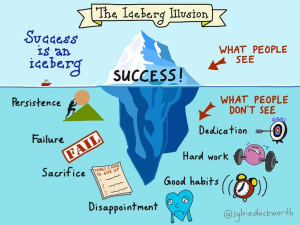THINKING DURING A MATCH
THINKING DURING A MATCH thoughts by Tricia Van Nus
What if I …….. will I/can I?……. my knee hurts ……
someone’s talking back there ……… I’m hungry ……..
someone’s talking back there ……… I’m hungry ……..
..
These little thoughts impose themselves to test your resolve, and give you the opportunity to ask the eternal question……What should I think about in a match?…..
..
Some will say – think about nothing. Easier said than done! What is nothing – a blank board, an empty sky, a black hole, an empty cup? All these get the mind working on the images – “nothing” suddenly becomes something.
..
When the shooter is on the line, the mind is the voice of reason – keeping the performance constant, calm and reliable. Some shooters happily talk to themselves (even aloud at times) to keep themselves on track, reminding themselves of what they are doing right. Of course the KISS principle applies here – keep it simple.
..
Trying to analyse each and every action from all angles will only divert energy to the analysis and perhaps away from what you are doing…. that is away from the process of firing the good shot. If need be, lock the analyst in the car while you shoot – plenty of time later to let them out.
..
Perhaps the analyst CAN be allowed to the firing line on occasions, but they are required to stay mute once the rifle is at the shoulder…… ie…… Do the analysing, make a decision and then act on the decision. Once the action has started the analyst is NOT permitted to interfere…….and if that analyst inside you does interfere – throw them out of the range!!!
..
I offer a suggestion that “CUE” words or phrases are useful – words that invoke a positive image.
“my position is rock solid”………… “my sights are crystal clear”……. “each shot I fire is smooth”
Of course, as is with many things, using cue words or phrases only works if you have trained with this approach. It’s also an advantage if you are the kind of person who relates well to these image cues.
Learn about yourself and decide whether you produce your best work after being around people and absorbing their vibrant energy, or whether you prefer to step back a bit and have a quiet time to collect your thoughts just before a match. Don’t be afraid to withdraw and get your mind into the “shooting mode”
..
My recommendation – think about how much you enjoy what you are doing – you have chosen this most exacting of sports. Think about your process – sure and reliable. Here a few other hints… things that you can think about…..
..
- Have a plan – know what you want to achieve – both short term and in the longer term and then stick by it
- Be concerned and pay attention to those details over which you do have control
- A score is not the only indicator of performance level – it’s your process that counts more in the longer term
- Stay working on those parts of your performance that matter – smooth breathing, solid position, clear sighting, hold and reliable trigger release and follow-through
- Do nothing more and nothing less than the performance of your best shot
- Give yourself a pat on the back when it works, and a slight nudge to get back on track if it slips
- You are your own motivator during a match

“To see over the wall (ie outcome),
one must first climb the ladder
and take each step in order (ie process)”..
TO THE COACH: As a coach, you have to consider that each athlete is different and most likely use different ‘mental preparation skills’ before and during a match.
..
For example, some athletes may use self-talk, some athletes like to be in a quiet environment, whereas some athletes will be very talkative and rely on the energy of others to boost them. Both the quiet and talkative athlete have their place, and it is part of your job to ensure that one does not disrupt the thoughts of the other.
..
COACHING TIPS
- Ask athletes to target factors that can be controlled, eg an athlete cannot worry about the result of the competition or the weather because they cannot control it, but they can nominate such things as good position, clear thinking, and careful attention to detail.
- Design and implement individual goal-setting plans – both long and short term. The athlete will then have a better idea of the grand picture and where this competition fits into the scheme of things
- Discuss individual goals – every match has a goal
- Learn how and when to best leave the athlete who wants space – be available so they may seek you if required, yet not be “in their face”
- Learn simple key sentences for the talkative athlete – they want to express themselves not just hear a series of statements from you
- Assist the athlete in dealing with both winning and losing, eg when they win they should attribute success to their hard work in training, and their reliable match process. When they don’t win, they should pay tribute to their effort, show a willingness to continue working hard to improve, and look forward to the next opportunity to compete.
- Encourage participation in the right spirit.
..
The rest is up to you – have fun!
By Tricia Van Nus

